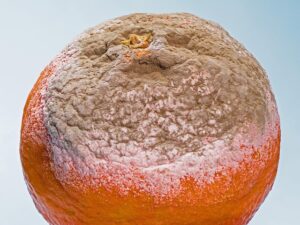 Protecting Your Home and Yourself from a Mold Injury
Protecting Your Home and Yourself from a Mold Injury
In general, mold in the house should be fixed and avoided whenever possible.
But then there’s toxic mold. Toxic mold is a very, very serious thing.
In particular molds in the Stachybotrys family – commonly called black molds because of their appearance – have been blamed for devastating adverse affects.
Can Mold Really Be Toxic?
Not exactly. Mold occurs naturally, but certain kinds release toxins that can be very dangerous. How dangerous, though, is still a controversy.
The toxins certain mold spores emit have been definitely been connected to:
- Sinus infections
- Asthma
- Skin problems
- Fungal infection in the lungs
- Chronic coughing
- Hypersensitivity pneumonitis, which is similar to pneumonia
- and other severe reactions.
But in addition, a lot of people believe mold can also cause hearing and memory loss, pneumonia, pulmonary hemorrhage, and low bone mineral density. The CDC says these claims haven’t been proven.
 How Can I Know if It Was Mold that Injured Me?
How Can I Know if It Was Mold that Injured Me?
If you suspect mold may be making you or a loved one sick, the first step is to look for visible signs. For symptoms like coughing, headaches, shortness of breath, or skin irritation that seem to get worse indoors, mold could be the cause.
You’ll want to search for black, green, or white patches on walls, ceilings, or around vents, especially in areas with moisture like bathrooms or basements.
A musty or earthy odor is another common warning sign.
You can hire a certified mold inspector to test the air and surfaces in your home or hotel room. If your doctor suspects mold-related illness, ask for medical testing and documentation that links your symptoms to environmental exposure. This evidence can be crucial if you decide to pursue a legal claim.
Who Is Responsible?
Toxic mold in hotels, apartments, or other buildings can lead to serious health problems – and in some cases, even wrongful death.
If your loved one died after prolonged exposure to black mold or another dangerous fungus, the property owner may be to blame.
Landlords, hotel managers, and building owners have a legal duty to keep living spaces safe and free from hazards. When they ignore signs of mold, fail to fix leaks, or skip inspections, they’re putting lives at risk.
If a preventable mold problem led to your family member’s death, you may be able to file a wrongful death lawsuit to hold them accountable and seek justice for your loss.
 Legal Help After a Toxic Mold Injury
Legal Help After a Toxic Mold Injury
If you or a family member has been injured or become ill due to a mold infestation, our Memphis personal injury attorneys may be able to help.
Contact us today to discuss your situation for free.

 How Can I Know if It Was Mold that Injured Me?
How Can I Know if It Was Mold that Injured Me? Legal Help After a Toxic Mold Injury
Legal Help After a Toxic Mold Injury